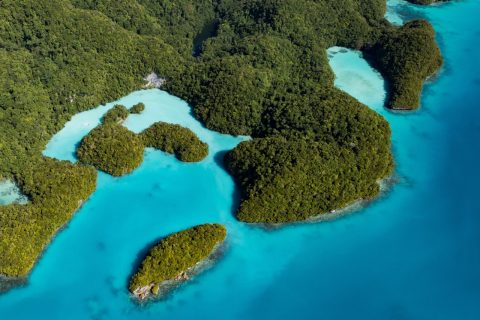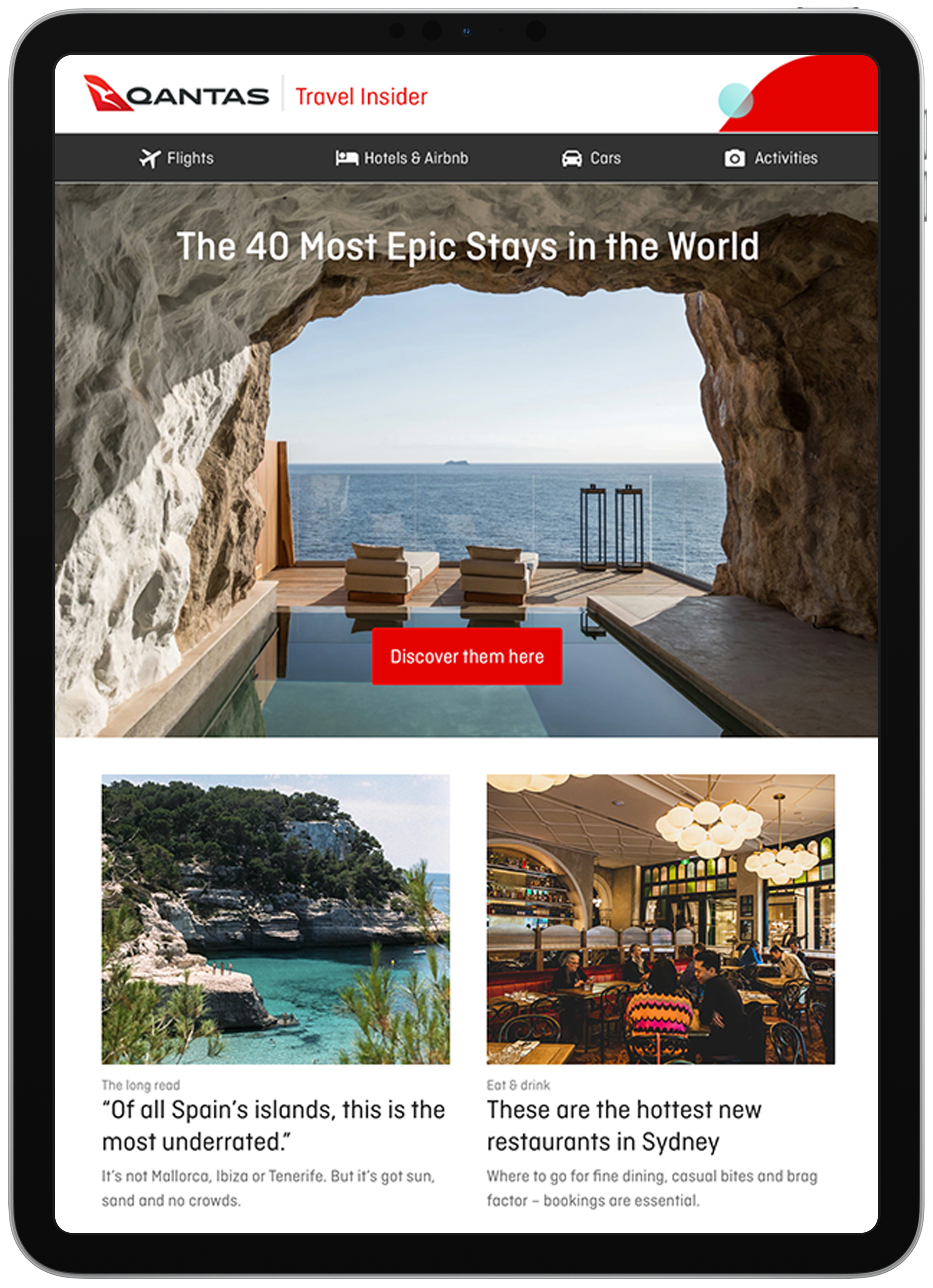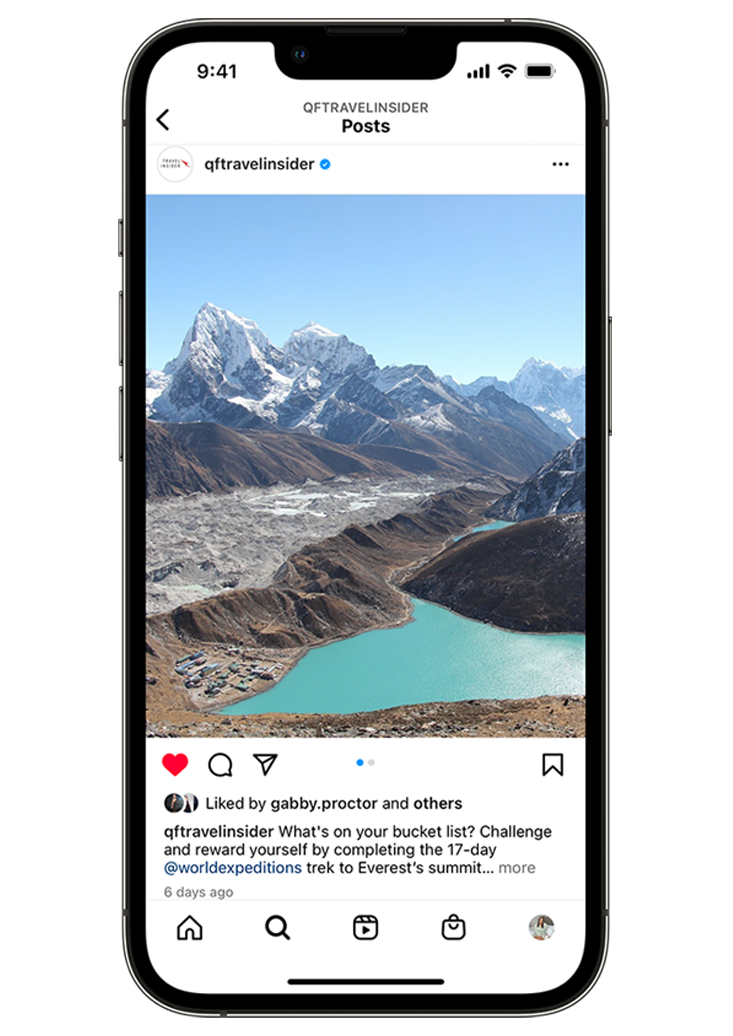Read Before You Leave — Palau
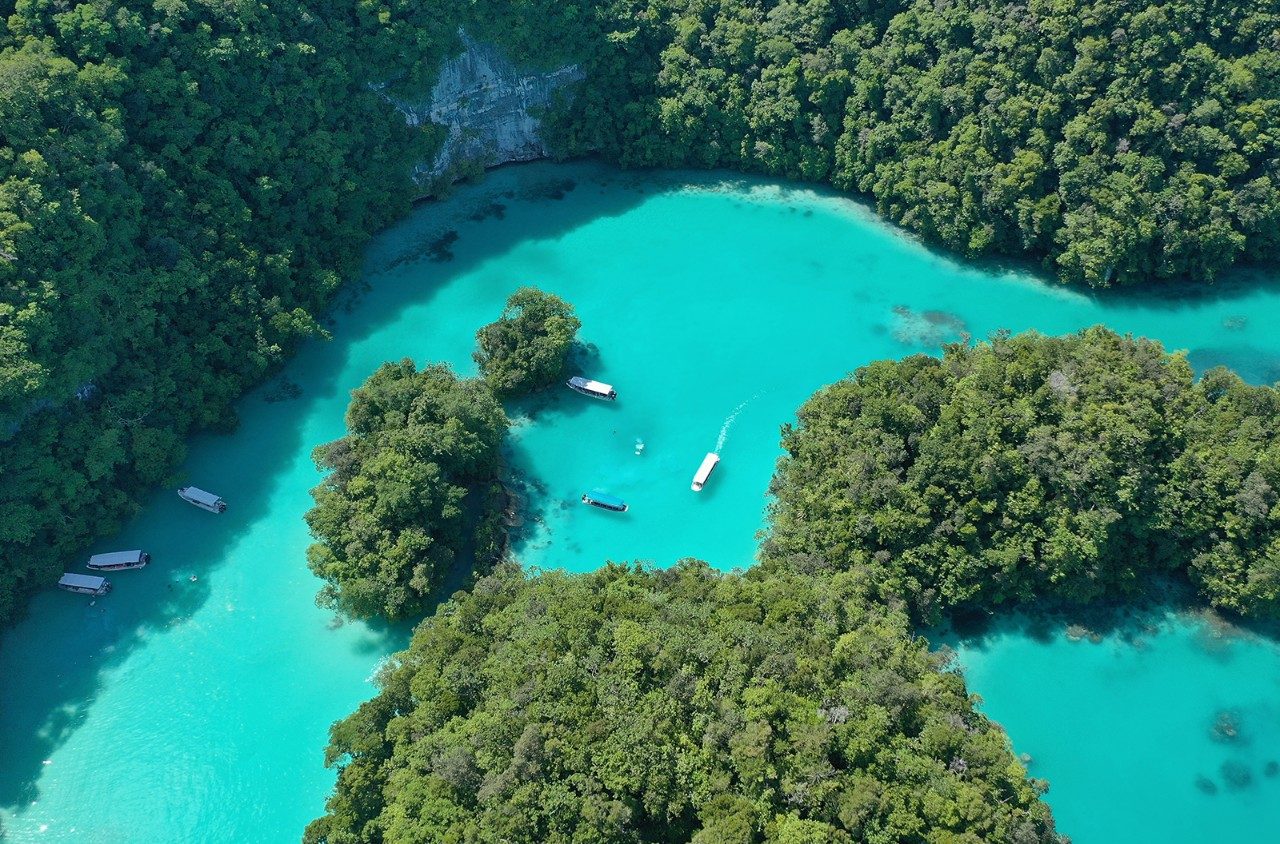
Palau, an archipelago of over 300 islands scattered across the western Pacific Ocean, is the picture of tropical paradise. Imagine vibrant coral reefs, lush jungles edged by limestone cliffs and sun-drenched beaches and you’re some way to conjuring a vision of the country’s beauty. A dream destination for nature lovers, adventure seekers and anyone looking to disconnect, Palau rewards any traveller willing to step off the beaten track. Here’s everything you need to know to plan your trip to this beautiful part of the Pacific.
Flight time to Palau
Qantas now flies direct to Koror from Brisbane once a week. The total flight time from Brisbane to Koror, on the main island of the same name, is around 6 hours.
Entering Palau
Visa requirements for Palau
Australian passport holders can obtain a 30-day tourist visa upon arrival in Palau, provided you can present a passport with at least six months validity from the date of arrival. Travellers will also need a return ticket and proof of sufficient funds to support your stay.
Requirements for entry and visas change frequently, so it’s important to check official websites, such as Smart Traveller, for any updates or additional entry requirements, such as health declarations or vaccinations, in advance.
Visitors will also need to complete this form up to 72 hours before their arrival in Palau. There is no fee for this.
Landing in Palau
Palau International Airport
Palau’s primary airport is Roman Tmetuchl International Airport, around 20-30 minutes drive away from Koror downtown. There are no taxis at Palau airport: airport transfers or shuttle buses are best arranged through your hotel. Car rental services are also available from the airport if you plan to explore independently.
Vaccine and health advice for Palau

It’s important to make sure your basic vaccinations are up-to-date before your trip. Recommended vaccinations include:
- Hepatitis A and B
- Typhoid
- Measles, Mumps, Rubella (MMR)
- Tetanus-Diphtheria-Pertussis (TDAP)
It’s also a good idea to consult with a healthcare provider about any specific vaccinations or precautions needed for travel to Palau.
Mosquito-borne illnesses
Like many tropical destinations, Palau does have some risk of mosquito-borne diseases, including Dengue fever and Zika virus. Make sure to pack insect repellent, wear long sleeves and pants during peak mosquito activity (most notably between May and October) and sleep under a mosquito net if you plan on staying in more rustic accommodation.
Legalities in Palau
Palau has a reputation for being a relatively relaxed destination but visitors should be aware of the local laws. Here are some key things to remember:
- Drug laws: Palau has strict laws regarding drugs and penalties for possession can be severe. This does not only include drugs that are legal in Australia; even the use (and carriage) of e-cigarettes is prohibited in Palau.
- Road rules: Familiarise yourself with local road rules, as they also differ from what might be commonplace in Australia. Overtaking slow vehicles, for example, is illegal in Palau.
- Alcohol: The legal drinking age is 21.
- Respect for nature: Palau places a strong emphasis on environmental conservation. The "Palau National Marine Sanctuary" is one of the world’s largest protected marine areas and visitors are expected to respect the local ecosystems, including marine life, coral reefs and wildlife. For this reason, non reef-safe sunscreen was outlawed in 2020 so you’ll need to ensure you are using only reef-safe sunscreen during your stay.
- Dress code: Palau tends to be conservative. Ensure you are wearing appropriate clothing so as not to offend locals (including covered arms and legs) when wandering around town or visiting sacred sites.
Transport tips in Palau
- Palau is a relatively small and remote country so getting around is fairly simple, though options are limited.
- Taxis: Palau doesn’t have an extensive taxi network but taxis are available and can be hired for short trips. Unlike Australia, taxi meters don’t exist in Palau so be sure to negotiate and fix the fare before departure. There are no ride sharing services in Palau. Some restaurants even provide transport so, upon reservation, ask if this service is provided.
- Car Rentals: Renting a car is the best way to explore the island at your own pace (that will need to be under 40 kilometres per hour, the nationwide speed limit). If you’d like to rent a car, be sure to book in advance as rentals can be in high demand during peak tourist seasons and ensure you have the right documentation: you’ll need an IDL (International Driver’s License), issued by the Australian Automobile Association at home, as well as your Australian Driver’s License to legally hire and drive a vehicle in Palau. Once you’re out and about, be cautious: locals drive on the right hand side of the road and many routes can be narrow and winding with no footpath, especially in more remote areas.
- Biking and Walking: Palau's tropical terrain is ideal for cycling and several bike rentals are available across the country. Walking is also a great option for getting around within the small towns or when exploring nearby attractions.
- Boat tours: For inter-island transportation, boat tours are the best (and easiest) way to explore further afield.
Money in Palau
The local currency is United States Dollars, so Australian visitors will need to exchange their home currency upon arrival. While many places in Palau also accept credit and debit cards, and ATMs are readily available in cities, it's a good idea to carry some cash, especially when visiting more remote areas or smaller shops.
ATMs and currency exchange
While ATMs are available in built up areas of Koror (the country’s largest and most populous state), some locations on the islands may not have access to banking services. Ensure you have sufficient funds for the duration of your stay and don’t forget to inform your bank of your travel plans before departure to avoid issues with using your credit or debit cards.
When to go to Palau
Palau has a tropical climate, with warm and humid conditions throughout the year – ideal beach weather. The average temperature is between 26°C and 30°C.
Palau experiences a wet season from May to November, when rain is more frequent. You won’t need to contend with typhoons, however, so travel during this time is still entirely possible if you don’t mind the odd shower. If you’d prefer more sunny days, the best time to visit is during the dry season from December to April.
Safety in Palau
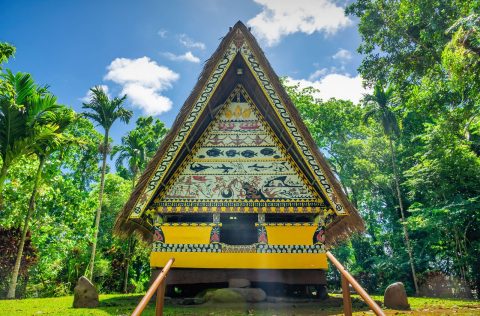
Palau is considered a very safe destination for travellers, with low crime rates, rare instances of civil unrest and a friendly local population. As with all travel, you should still exercise basic safety precautions:
Natural Hazards: Many of Palau’s beautiful beaches are remote so always be mindful of currents, particularly when swimming or snorkeling, and check local advisories before venturing into the water. Severe weather conditions in Palau include tropical storms (and, to a lesser extent, tsunamis), so consider registering your details with authorities such as the Global Disaster Alert and Coordination System and the International Tsunami Information Center, which send automated updates in case of an emergency.
Emergency services: The main emergency number in Palau is 911.
Dress code in Palau
While Palau is a laid-back, tropical destination and you can dress casually (in swimwear) while on the beaches and islands, remember to cover up when you’re in town or visiting any cultural sites. Light, breathable clothing is the best option for the humid climate and comfortable, sturdy shoes are a must if you plan to hike or explore.
Tap water in Palau
In general, it’s best to avoid drinking tap water in Palau, especially in more remote areas. Stick to bottled water, which is widely available. If you’re in a more eco-conscious area, it might be worth bringing a refillable water bottle with a built-in filter.
Organise travel insurance
Comprehensive travel insurance is essential for any trip but in Palau, where medical facilities are limited, it’s even more crucial. In the case of a serious emergency, evacuation to a nearby country or territory, like Guam, may be necessary, so ensure that your insurance covers adequate medical expenses. Also check that your policy covers accidents relating to activities such as diving or snorkeling, if either of these are on your itinerary.
Phone calls and mobile data in Palau
Before you land in Palau, don’t forget to disable data roaming on your phone to avoid expensive charges. If you need to keep in touch with family or friends, consider purchasing a local SIM card or a prepaid international SIM card. While wi-fi is available in most hotels and cafes, speeds can vary and phone coverage can be limited in remote areas.
Gadgets and electronics in Palau
Palau uses a lower voltage than in Australia, which means Australian travellers don't need to worry about using a voltage converter. However, the power plugs and sockets are different. You’ll need to bring an adapter that converts to plug style A or B in order to charge your electronics.
Internet in Palau
Internet is available in major tourist accommodations, cafes, and some restaurants in Palau. While wi-fi is generally reliable in urban areas, it can be slower in remote locations. Using a VPN is recommended when connecting to public networks if you need to stay connected.
Handy websites
- Palau Visitors Authority: Official tourism website for information on attractions, tours and events.
- Australian Embassy in Palau: For consular services and travel advisories.
- Smart Traveller: For up-to-date safety information and travel tips relevant to Australians.
SEE ALSO: 13 Reasons Why You Need to Visit Palau Right Now
